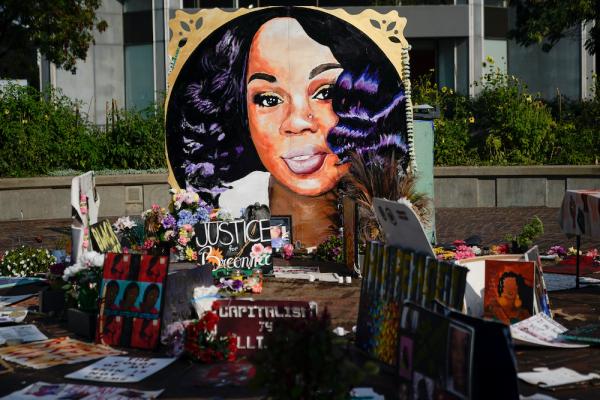Sep 24, 2020
Breonna Taylor’s name didn’t even appear in Wednesday’s indictment against Hankison, which raises alarming questions about what case the attorney general made to defend the value of her life. The decision exposes the value gap in our justice system that so often dismisses and degrades the value of Black life and treats police recklessness and misconduct with impunity. Kentucky Attorney General Daniel Cameron failed to explain why Hankison felt it was necessary to shoot wildly and blindly into the apartment from the parking lot or the details around how this seemingly faulty no-knock warrant was obtained and executed in the first place.
Read the Full Article

Already a subscriber? Login
